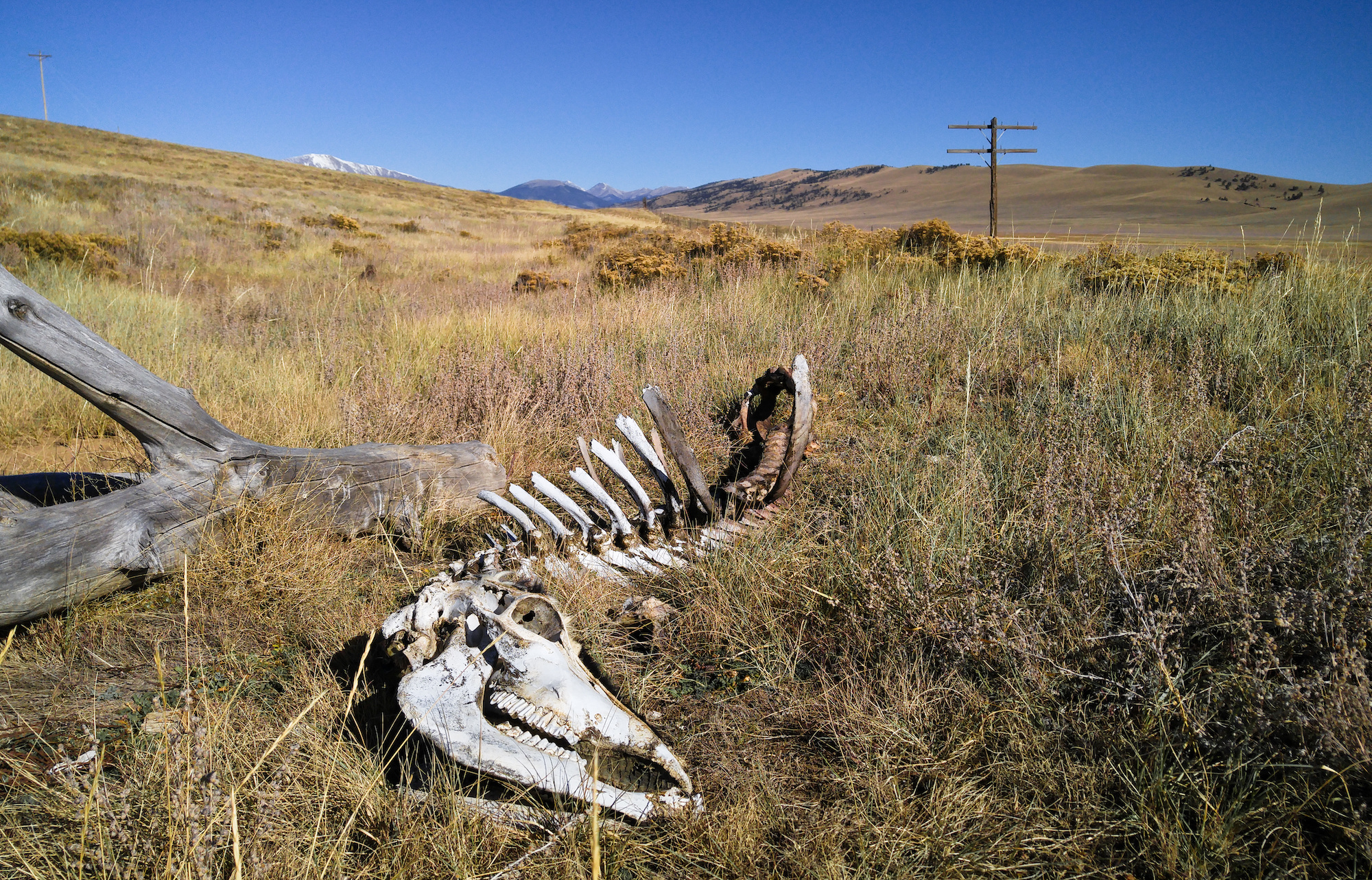
The mystery surrounding 40 dead cattle on public land in western Colorado deepened earlier this month when officials found a pack of dogs harassing wildlife within seven miles of where the dead cows had been discovered. The recent discovery casts additional doubt over previous claims that wolves were responsible for the livestock deaths. Along with the general lack of evidence of any wolves in the area, this development has led Colorado Parks and Wildlife to end its investigation into the supposed wolf depredation incident that a rancher in Rio Blanco County reported last October.
“Although a few cattle showed wounds consistent with injuries from large canines, further investigation to collect additional evidence has yielded no confirmation of wolves in the area,” CPW northwest region manager Travis Black explained in a press release last week. “We believe these few cattle were likely killed, or injured and died later, by some species of canine larger than coyotes, but we do not have specific evidence to determine what species of canid caused the depredation.”
A Lack of Evidence
CPW’s investigation began on Oct. 7, when the agency received a report of 18 dead calves on White River National Forest lands near Meeker. The report came from rancher Lenny Klinglesmith, who had been grazing his cattle there over the summer. Weeks later, Klinglesmith found another 22 of his cows dead in the same area.
Klingesmith’s report instantly led to speculation that there could be a second known wolf pack living in Colorado. At the time, CPW was already tracking the North Park wolf pack in Jackson County. That pack was found responsible in December 2021 for the first confirmed wolf kill of livestock in the state in over 70 years. The same pack would strike two more times over the next 30 days, injuring and killing multiple cows and cattle dogs near the town of Walden.
The string of wolf attacks was big news in a state that, just one year prior, passed a historic ballot measure to reintroduce gray wolves in Colorado. Ranchers were already voicing their concerns about how the reintroduction would affect their operations, and they pointed to the North Park pack as proof.
Read Next: How Many Wolves Should There Be in Colorado?
So, when another rancher on the Western Slope filed a livestock depredation report roughly eight months later, some were already assuming that wolves were responsible. After all, CPW’s initial investigation found that a few of the calves showed damage consistent with wolf depredation, including bite marks that appeared to have been caused by canine teeth.
But over the last 80-plus years, CPW hasn’t confirmed any wolf sightings in the White River National Forest, which lies more than 100 miles west of the North Park pack’s territory. In the wake of the reports, the agency conducted aircraft flyovers, set up camera traps, and performed howling surveys, but none of these efforts turned up any evidence of wolves in the area, according to Colorado Public Radio.
“We’re scratching our heads a little bit. We really don’t know what has occurred up there,” Black said in November during a testimony before the state wildlife commission.
By then, other doubts were already being voiced, as reported by the Steamboat Pilot and several other local outlets. Although the bite marks looked consistent with canine teeth, many pointed out that wolves don’t typically kill that many cows in a single depredation event. Black also mentioned during his testimony that he found it curious none of the dead cows had been consumed or fed on.
“What we’re lacking [in the Meeker case], in my opinion, is that typical feeding behavior that we would see … typically wolves would come back and feed on a carcass,” he explained.
Read Next: Bounties, Petitions, and Politics: Why the Wolf War Is Only Getting More Extreme
CPW then began working with veterinarians to determine if the cattle had died from some sickness. Even Don Gittleston, the rancher who’d lost multiple cows to the North Park pack, told the Colorodoan that he thought disease might have been a factor in the Klinglesmith incident.
This head-scratching continued through the winter. By the start of this month, no further evidence of a wolf pack in the Meeker area had come to light, and when CPW officials discovered a pack of dogs harassing wildlife close to where Klinglesmith’s cattle had died, the agency decided to close its investigation. They chalked up the cause of the cows’ death as “unconfirmed.”
“The 90-day window allowed for producers to provide proof of loss has expired, so the investigation is being closed,” Black explained on Feb. 7. The agency also said that “due to a lack of evidence of wolves in the area, Klinglesmith will not be further pursuing compensation.”